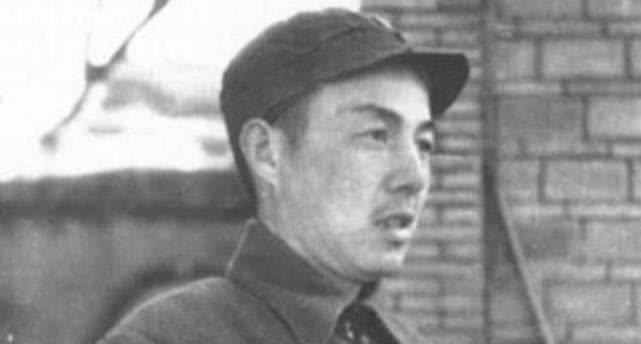Many people have seen war dramas such as "The Great Southwest Bandits", reflecting the contributions made by the heroic People's Liberation Army to suppress bandits and people, and even a founding general who is famous for suppressing bandits, he is General Su Zhenhua.

It is mentioned that Admiral Su Zhenhua is a native of Pingjiang County, Hunan Province, born in a poor peasant family, from the age of 6 he has helped the family to do farm work, in 1926, 14-year-old Su Zhenhua joined the children's group, later joined the peasant movement, and became a Red Army soldier in 1930.
Because of his bravery in battle, he became a platoon leader the next year, and then served as a company instructor, regimental political commissar and other positions, Su Zhenhua was very brave in combat, he was wounded on the battlefield generally did not go off the line of fire, and he made many achievements on the Long March.
In January 1937, Su Zhenhua entered the Anti-Japanese Military and Political University to study, and then stayed in the Anti-Japanese University to study and work, which was a huge progress for Su Zhenhua, who had not read anything since childhood, and it was more meaningful than winning the war, and his knowledge was learned in the Red Army.
In the early period of the Anti-Japanese War, Su Zhenhua basically did not go to the battlefield until May 1940, when he was appointed as the 343rd Brigade of the 115th Division of the Eighth Route Army and the political commissar of the Luxi Military Region, and soon together with the brigade commander Yang Yong, he commanded the Battle of Panxidu, which was of great significance to the consolidation of the Anti-Japanese Base Area in Luxi.
After the victory of the Anti-Japanese War, Su Zhenhua became the political commissar of the 1st Column of the Jinji-Hebei Luyu Field Army, participated in the Battle of Handan with General Yang Dezhi, and then marched thousands of miles to participate in the Battle of the Giant Goldfish, and the following year won the Battle of Southwest Lu, with great achievements.
In 1949, Su Zhenhua served as the political commissar of the Erye 5th Corps, after the Battle of the Crossing River he transferred to the southwest, after the liberation of Guiyang became the commander and political commissar of the Guizhou Military Region, although at this time new China was established, but the Kuomintang, which was not willing to lose, was still secretly stubborn.
At that time, many remnants of the Kuomintang soldiers throughout the country infiltrated the mountains, and they either colluded with the bandits or degenerated into bandits, undermining the order and production of new China, seriously affecting the lives of the people, and a large number of bandits were active in Guizhou alone.
When the troops entered Guizhou to suppress bandits, they could not quickly adapt to their tactics, techniques, and living habits; in addition, at that time, the whole country basically won victories, and many soldiers also had the idea of being proud of the enemy, resulting in little progress in the initial suppression of bandits.
On January 14, 1950, Commander Yang Yong was attacked by bandits on the way back from Sichuan to Guizhou, but he did not expect that the bandits were so bold, which also sounded the alarm bell for Su Zhenhua and deepened his understanding of the bandits, and then Su Zhenhua adjusted the mobility and flexibility of the troops.
Su Zhenhua spent 5 years in Guizhou, under his leadership, Guizhou military and civilian bandits have made great achievements, a total of more than 270,000 remnants of the Kuomintang armed forces and bandits, and what is even more remarkable is that he organized the resumption of local production, changing the history of Guizhou's grain importation from other provinces.
In 1957, Su Zhenhua became the political commissar of the Navy, and he also made great contributions to the construction of the Chinese Navy, and on February 7, 1979, Su Zhenhua died of illness at the age of 67.